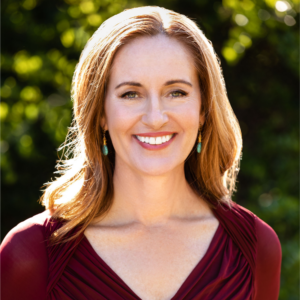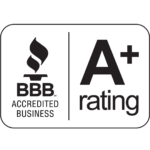Artist's Art is Rejected - But She Sold it for $4800
Artist’s Art is Rejected – But She Sold It For $4800
(Transcription)
Artist, Jill Mueller
QUESTION: What did you think you needed to do to sell your art?
Ann Rea: You were told to enter contests and you needed to donate your work to auctions. Is that right?
Jill Mueller: Yeah, that’s it.
Ann Rea: Yeah!
Jill Mueller: And hope it sells for a lot of money, right? Because they were gonna take 40%.
Ann Rea: Okay. So, I want to just tell everybody this. Donating your work for free is not a way to sell your art, first of all. Even if you get a percentage, if they sell your art at a discount, then it degrades the value of your brand.
So, that’s what I have to say about art auctions. Usually, you’re just taking advantage of artists. Okay, I don’t know a lot of artists who really do benefit. I’m sure there are some so, don’t write in if you’re one of the exceptions.
I’m making a generalization which holds true pretty consistently, that art auctions is not a marketing plan. It’s not a way to sell your art. Number two, art contests I don’t care how prestigious they are. There’s no prestige in not getting paid. There’s nothing prestigious about that. If you want a blue ribbon, go buy yourself one on Amazon. You don’t need a blue ribbon.
You need to get paid, if what you want to do is make a living from your art, either on a part-time basis or on a full time basis.
QUESTION: Why was this artist thrilled that her art was rejected?
Jill Mueller: It made me feel crappy. Really bad. And then, I had somebody interested in a piece that was up there. I mean, I wanted to call him up and say give me my entrance back and forget about it, you know? It was. It was a horrible night. Two hours later, I learned all three didn’t get in and I was so happy. Running around, yay! It was great! Now, I have sold both, two of the three.
Ann Rea: Do you mind asking how much you sold those two pieces for?
Jill Mueller: One went for $2700 dollars and the other one went for $1200.
Ann Rea: So, let’s look at this. So, to enter these contests, you could have been out four pieces of inventory but, instead you made close to 4,000 dollars.
Jill Mueller: Yeah.
Ann Rea: So, the cost of tuition for The MAKING Art Making MONEY program is $1,998 dollars (USD). So, you got a pretty good return on that investment so far, right?
Jill Mueller: Yes
Ann Rea: And you just started! Jill is a new student, by the way. She hasn’t even, she just started.
QUESTION: How does it feel to say ‘no’?
Jill Mueller: Taking the power back, empowering myself from my own art and what bothered me the most was, well two of the three pieces had my heart and soul in them. They were done up in the mountains where I love it and done on location and to think I was gonna go send them off to Never Never Land, not knowing who would want them and because they’re watercolors, you know, there’s this whole group of people that think oils are the only thing that are going to bring a lot of money. So, they don’t really want to look at watercolors.
Ann Rea: Well, you made up 4,000 bucks, so.
Jill Mueller: Yeah.
Ann Rea: The thing is, that’s what you just said. You did put your heart and soul into those pieces and no, you shouldn’t sell them for a discount for that reason.
Jill Mueller: Yeah.
Ann Rea: Like, art has value. It has value and when you, like if you sell a car and you negotiate the price, and you sell it at a discount, that’s one thing, okay, but when you sell your own art at discount, it does damage.
Jill Mueller: Yeah and makes you feel really icky.
QUESTION: How much money and time have you wasted on art contests?
Jill Mueller: It’s crazy and you know, I’ve entered those plain air things online and here’s 35 here, here’s 100 dollars here, here’s 75. It’s just gone! Like you’re throwing it off into the universe.
Ann Rea: I’m gonna give you a homework assignment. I want you to add up, now as best as you can estimate, I want you to add up how much money you’ve spent on art contests over the years.
Jill Mueller: Oh my gosh. Over 40 years?
Ann Rea: Yep. I want you to just give it your best bet and trust me, this exercise is going to be worth it because you are never gonna damn well do it again after this and you’re not going to do other things as a result of this exercise.
Jill Mueller: Oh, okay! I can do that.
Ann Rea: Yeah, and then let me know when you come up with a final figure. Put it in a spreadsheet. Just do your best. It’s not going to be perfect. We’re not after perfection here. Just try to do your best and, yeah, let’s see what that number looks like. Because then we know going forward, that’s not money you’re gonna waste anymore.
Jill Mueller: Yeah.
Ann Rea: Marilyn Rose, I asked her to do this and she estimated 8,000 dollars in ten years.
Jill Mueller: Wow.
Ann Rea: Yeah, that’s a lot.
Jill Mueller: I probably put out more money entering these art and craft shows that are around. Which is another thing. I know you meet people, but do you meet people
Ann Rea: You need to find a market. That’s the key.
QUESTION: What do you do after you sell your art?
Ann Rea: What you’re gonna do is you’re gonna ask them for referrals using the instruction that I give about how to ask for referrals and we’ll see if we can get some for sales out of this 4,00 dollars, okay? That’s your second homework assignment.
Jill Mueller: Yeah. So, where do I get the instructions on how to do a referral?
Ann Rea: So, what I want you to do is I want you to post in a Facebook group and I want you to find a study partner who knows how to ask for referrals, whose been through the selling course and then after you guys meet, I want you to post into the Facebook group, exactly how you’re gonna ask for these referrals and I’ll tell you if you guys got it right. It’s very simple and if you do this consistently, you’re gonna sell more than you ever have in your life because, the fact is, is that over, on average, over 85% of new sales for a small business comes by way of referrals but first, you have to ask for the referral, number one. Number two, you have to learn how to ask for it the correct way and then you’re more than likely to actually get a referral and then you’re business starts to grow organically, exponentially and you’re not paying for advertising, the sales are easier, right? So, there’s all sorts of advantages of learning how to ask for referrals and to be consistent in it. So, you’re gonna get to that point in the selling course, but since you just made these two sales, you can just hop on a study partner session so that you can ask for the referrals while they’re still warm.
Jill Mueller: Yeah, that sounds right.
Ann Rea: Let’s make you some even more sales.
Jill Mueller: Okay, sounds good.
Ann Rea: Yeah, right, right on!
QUESTION: Jill’s actual return on her investment to date.
Jill Mueller: I said, I’d like to show this new piece to you. I think you would really like it and so, I sold that one for $900.
Ann Rea: Uh, mam, hold on a second, I want to update my calculations.
So, as a result of what you learned in The MAKING Art Making MONEY program so far, even though you just have started, you’ve actually made close to 5,000 dollars in sales that you would not have otherwise.
QUESTION: Why you should never discount your art?
Ann Rea: You can sell all live long day. If you’re not making a profit, it doesn’t matter. What matters is not the money you make. What matters is the money you keep. So, if you’re discounting and you’re doing it arbitrarily and you’re not really clear on what your profit margin is, then you’re shooting yourself in the foot and you’re basically annihilating the confidence that people have in the legitimacy of your prices and the value of what you do. So, you’ll see artists doing that and I can tell you that a gallery that used to represent me in Los Angeles, a gallery owner told me, that without a doubt, that the artists who allowed her to discount their art, sold significantly less art than the ones who didn’t.
Jill Mueller: Wow!
QUESTION: What would you say to artists who have not yet applied?
Jill Mueller: I would ask them if what they were doing, was it working and if they said no, I says, well then, what have you got to lose? Why don’t you invest in yourself and go here and try this out and I like your statement about being active in it. I mean, it’s not for everybody. You know, there’s artists that are very timid about their work and I don’t think, you know, they’re happy if they sell one a year or two, you know? They don’t live on it.
QUESTION: Who should not apply?
Ann Rea: It’s not for hobbyist. This program is not for hobbyist and a lot of people when I say that, get really insulted, like, oh, my art’s not a hobby.
Well, yeah, actually, if you’re doing it for just your pleasure, it’s a hobby. It’s not my opinion. That’s the dictionary definition of hobby. You do something for your pleasure, and not for profit, it’s a hobby. So, call it what it is. My point is this, if you want to make a business, but you’re approaching it like a hobby, you’re gonna be miserable. If you want to sell your art, that’s a business. That’s a business. That’s what the Inc. Magazine article quoted me as saying. So, you got to think of it as a business. Problem is we haven’t been taught how to grow business in art school. As a matter of fact, we’re put to shame for even asking how we’re gonna make a living in art school, which is absurd. So, you gotta make a living. I gotta make a living. We all have to make a living and what is wrong with that? If you provide value in the world and you contribute in a way, why shouldn’t you get paid?
Congratulations Jill!
Ann Rea: So, anyway, I just wanna congratulate you and remind you 4,800 dollars actually.

Ann Rea, Fine Artist & Mentor
Ann Rea is a San Francisco-based fine artist. She created Making Art Making Money™, the leading and most reputable business program for fine artists since 2005. Rea’s art and business savvy have been featured on ABC, HGTV, Creative Live, The Good Life Project, in the book Career Renegade by Jonathan Fields, the San Francisco Chronicle, Art Business News, Fortune, and Inc. Magazines. Rea’s artistic talent was commended by her mentor, art icon Wayne Thiebaud.

